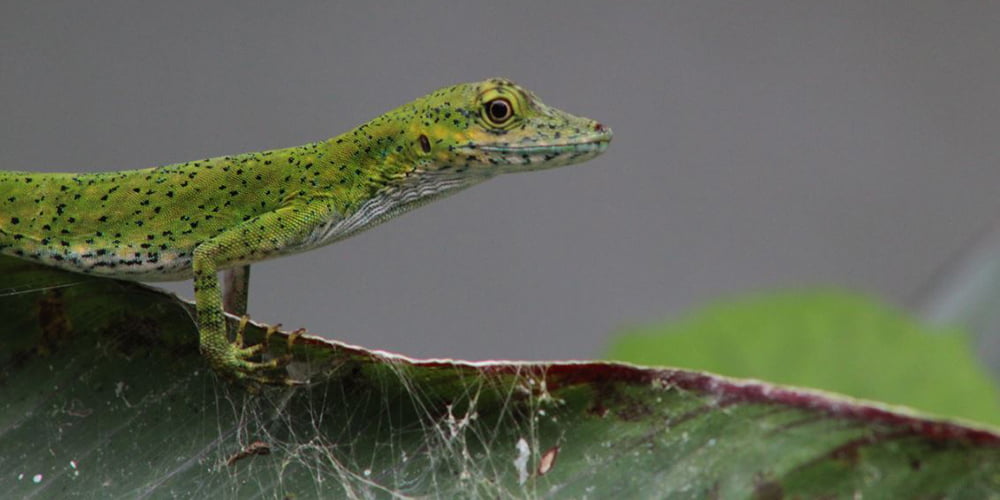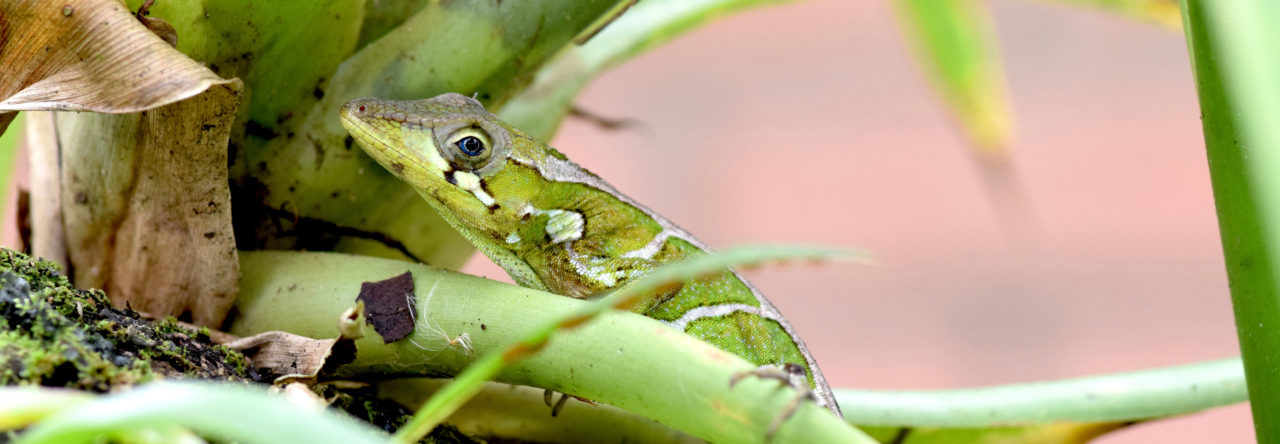
A biologist at The University of Texas at Arlington is studying the diversity of anole lizard species in the Caribbean islands to gain insight into why some species are common, while others are rare and possibly at risk for extinction.
The National Science Foundation awarded Luke Frishkoff, assistant professor of biology, a $1.1 million grant to investigate the reptile’s ecological niches, the set of conditions in which an organism can survive and reproduce.
Anoles with a broad niche thrive in a range of ecological conditions; those with a narrow niche are specialized to live in environments that meet their precise biological needs. Knowing the lizards’ niche characteristics will help scientists identify which species are in danger of dying out.

“We are in the middle of an extinction crisis right now, and some species are more likely to go extinct in the next 100 years than others,” Frishkoff said. “Among researchers, there is a common assumption that specialization is a predicting factor for extinction. The narrower the niche, the less likely it is that a species could survive.”
Frishkoff will collaborate with Martha Muñoz, a thermal biologist at Yale University, and Luke Mahler, an evolutionary biologist at the University of Toronto, to examine three aspects of the animal’s niche: diet, where they live among vegetation and how they interact with temperature.
The team’s findings will inform researchers’ strategies to conserve vulnerable species. As a community ecologist fascinated by the question of why various types of animals choose to live where they do, Frishkoff has a driving ambition to preserve the world’s biological diversity.
“When we go hiking and observe the plants and animals that are assembled there, I feel a deep sense of mystery,” Frishkoff said. “For me, the deepest motivation is to understand the rules by which life exists in these complex ecosystems.”
Frishkoff said humans can learn a lot from anoles about how to sustain life on earth.
“These lizards are a treasure trove of knowledge about ecology and evolutionary history, and they are a great model for understanding the fundamental properties of life on earth,” Frishkoff said.
- Singapore National Parks Studying Impact of Introduced Brown Anoles (and the Greenhouse Frog) - May 2, 2025
- Evolution in Real Time on Lizard Island - March 23, 2025
- Spider Snags Adult Anolis osa - March 22, 2025


Leave a Reply